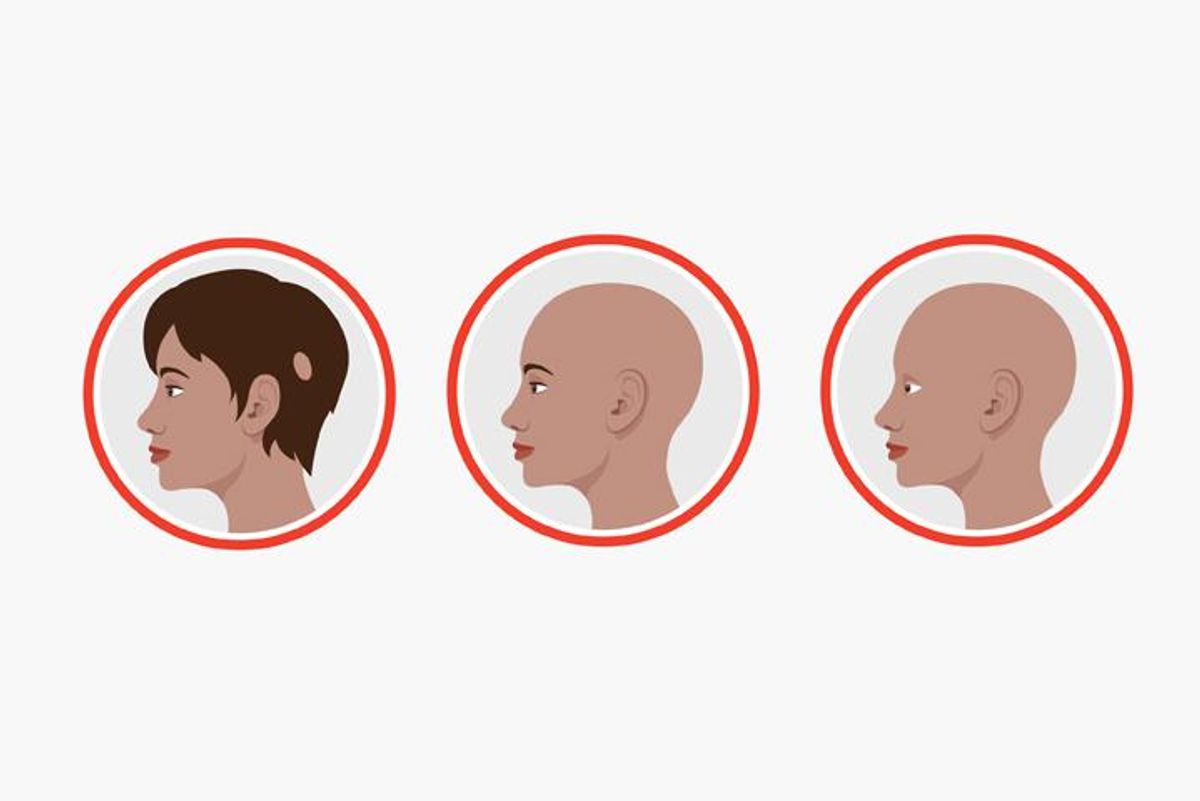
Alopecia Areata: Losing Your Hair? Don’t Despair
There are treatments and support for women with hair loss from alopecia areata
Jul 18, 2022
Nov 08, 2022
Created With Support
Fortesa Latifi is a journalist based in Los Angeles, California and a graduate of the Walter Cronkite School of Journalism & Mass Communication. She loves to write about chronic illness, mental health and the way politics affects our daily lives and relationships. You can find her work in Teen Vogue, The Lily and more.
Full BioLearn about our editorial policies

There are treatments and support for women with hair loss from alopecia areata
Medically reviewed by Dr. Elizabeth Liotta
Alopecia areata is a type of alopecia, which is an autoimmune condition where the immune system fights the body’s own hair follicles and causes clumps of hair to fall out, forming bald patches anywhere on the body.
Types include:
Alopecia areata (patchy): one or more bald patches the size of a coin on your scalp or other places on the body
Alopecia totalis: hair loss all over the head
Alopecia universalis: hair loss that affects the whole body, including facial hair, eyelashes, eyebrows and pubic hair.
Who gets alopecia?
Approximately 6.8 million people in the U.S. have or will develop alopecia areata in their lifetime.
Women and men are about equally likely to be diagnosed with alopecia areata.
Signs and symptoms of alopecia areata
Did you know?
20% of people with alopecia areata have a close family member with it.
Alopecia areata may be associated with other autoimmune conditions or can be triggered by stress.
Treatments for alopecia areata
In 30% to 50% of cases, people with alopecia areata spontaneously regrow hair within six to 12 months without any treatment.
There is no cure for hair loss that doesn’t grow back on its own, but there are treatments that can help stimulate hair follicles.
Treatment options may include:
A new class of medication called JAK inhibitors shows promise in helping treat alopecia areata.
Men vs. women
Men and women may respond differently to hair loss.
For example:
- Being bald may be more socially acceptable and easier for men
- Women may find it easier to use makeup to address loss of eyebrows or eyelashes
- Women may find it easier to lose body hair
Advice for women with alopecia areata
Patients and their healthcare providers (HCPs) may perceive alopecia areata differently. A woman who loses a patch of hair may experience it as severe hair loss, but an HCP may see this as mild because it’s only one patch.
The National Alopecia Areata Foundation provides resources, support groups and one-on-one phone support to help with the emotional and mental health effects of hair loss.
This resource was created with support from Eli Lilly.